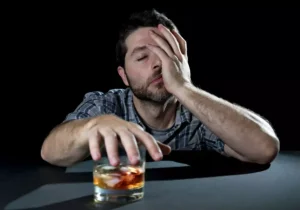
You’ll know if you can’t take alcohol because there will be a prominent warning on the box. Your pharmacist should also counsel you on your medicine when you pick up your script. Alcohol and medication can have a harmful interaction even if they’re taken at different times. It’s important to understand the very real possibility of a reaction. Drinking while you’re taking a prescription or OTC medication may not seem like a big deal.
- They can provide personalized guidance based on your specific medications and health status.
- Alcohol, like some medicines, can make you sleepy, drowsy, or lightheaded.
- You may have trouble concentrating or performing mechanical skills.
- If you have questions about interactions that may affect you, talk with your doctor or pharmacist.
- However, combining the two can put a significant strain on the liver often resulting in some of either the alcohol or the pain medication going unmetabolized.
- If you have questions about getting certain vaccines during your Nexlizet treatment, talk with your doctor.
Prostate Medications
There are many medications available to treated enlarged prostates. After nicotine, alcohol is the most commonly abused drug in our society. Add excessive use of alcohol to the regular use of a medication that is hard on the liver, and the potential for harm can soar. Excessive alcohol use can harm people who drink and those around them. You and your community can take steps to improve everyone’s health and quality of life.
Does Nexlizet interact with other drugs?

Combining alcohol with medication for seizures, including epilepsy medication, alcoholism treatment can cause serious side effects. These include dizziness, sleepiness, unusual behavior, changes in mental health status (including suicidal thoughts), and the increased risk of more seizures. Combining medicines for managing general pain, muscle ache, fever, and inflammation with alcohol can cause stomach upset, bleeding, ulcers in your stomach, and rapid heartbeat.

Mixing Alcohol with Daily Medication Drugs
When alcohol is consumed with other drugs that primarily use this enzyme for breakdown and excretion, blood levels of the other drug may theoretically increase, leading to increased side effects and toxicity. Antidepressants can cause drowsiness and dizziness that can be made worse with alcohol. Mixing any of the antidepressants below with alcohol can also increase feelings of depression or hopelessness.
Allergy & cold medications

If you have hypoglycemia, taking Levemir will lower your blood sugar even further, which can be life threatening. Another thing to keep in mind is that Rybelsus can cause gastrointestinal issues like nausea or upset stomach. If you already experience side effects from Rybelsus, adding alcohol to the mix might not be the best idea. Type 2 diabetes often comes with other health conditions, https://ecosoberhouse.com/ which often require medication. Suppose you plan to manage your diabetes with the glucagon-like peptide-1 (GLP-1) medication Rybelsus. In that case, you’ll need to know how it interacts with other medications you’re on, any health conditions you may have, and your general lifestyle.
How to Prevent a Dangerous Interaction
If you have questions about drug interactions that may affect you, talk with your doctor or pharmacist. Nexlizet (bempedoic acid/ezetimibe) is a prescription drug that’s used to lower cholesterol and certain heart and blood vessel risks. This drug can interact with other medications, including certain statin medications. Yet medications for alcohol use disorder can work well for people who want to stop drinking or drink a lot less. Pain pills and alcohol don’t just negatively impact the body, they negatively impact the brain as well.

Specifically, Levemir and green tea can both decrease your blood sugar levels. Because of this interaction, your doctor will likely recommend limiting how much green tea you consume during Levemir treatment. On their own, both pain pills and alcohol are substances that have a propensity to be abused, leading to dependency and addiction.
- Add excessive use of alcohol to the regular use of a medication that is hard on the liver, and the potential for harm can soar.
- If you have a nagging cough, you’ll likely reach for an over-the-counter expectorant.
- Individuals who use illicit stimulant drugs, such as cocaine, commonly use alcohol to “take the edge off” the stimulant drug.
- Beware that some medications, like laxatives and cough syrups, may contain some alcohol themselves, too.
- Before taking Nexlizet, talk with your doctor about your health history.
You take it daily as a pill or get a monthly injection at your health care professional’s office. The medication can help you have fewer days when you drink heavily as well as drink less overall. Some of these medications have been around for decades, but fewer than 10% of the people who could benefit from them use them. “You don’t have commercials talking about these drugs,” says Stephen Holt, MD, who co-directs the Addiction Recovery Clinic at Yale-New Haven Hospital St. Raphael Campus in Connecticut. “And primary care doctors tend to shy away from these meds because they weren’t trained to use them in med school.” This may happen due to already being under the influence of alcohol, or, as we talked about earlier, the alcohol masking the effects of the pain pill, thus leading to the need to take more.

Your doctor can determine whether Nexlizet is safe for you to take. “My hope,” taking pills with alcohol Schmidt says, “is that after a while the behavioral changes are such that the medication isn’t going to be necessary.” How you achieve that behavior change can vary from one person to another. For others, regular follow-up with their primary doctor should be enough and can work, Holt says. One drawback is that you must take two pills three times every day.
Ask your prescriber, as some antidepressants may increase drowsiness and make driving hazardous, especially if mixed with alcohol. If you have diabetes, drinking alcohol can affect your blood sugar levels. The key to avoiding interactions is keeping your healthcare provider informed about everything you’re taking, whether prescription medications, over-the-counter medications, or supplements.
